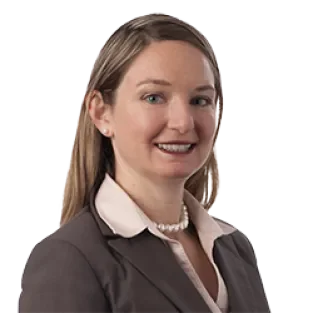ASAP
California Supreme Court Issues Decision on Good-Faith Defense for Minimum Wage Violations and Enforcement of Paid Leave Obligations under HWHFA
In Iloff v. LaPaille, the California Supreme Court addressed when “liquidated” or double damages may be avoided by an employer for minimum wage violations and how employees can pursue paid leave claims under California’s Healthy Workplaces, Healthy Families Act (HWHFA), the statewide paid sick and safe time law.
Defense to Liquidated Damages for Minimum Wage Violations: Under California Labor Code section 1194.2, liquidated damages in an amount equal to the amount of unpaid minimum wages are mandatory, unless an employer can demonstrate that it acted “in good faith and that the employer had reasonable grounds for believing that the act or omission was not a violation of any provision of the Labor Code relating to minimum wage, or an order of the [Industrial Welfare Commission].” If an employer can show that it had a good-faith and reasonable belief that it was not violating the law regarding minimum wages, a trial court has the discretion to award liquidated damages in an amount that is less than the minimum wages due the employee, or the court could award no liquidated damages whatsoever. A similar remedial scheme is found in the federal Fair Labor Standards Act.
The California Supreme Court held, “an employer must show that it made a reasonable attempt to determine the requirements of the law governing minimum wages” and “proof that the employer was ignorant of the law is insufficient.” The court noted that a good-faith determination will be “context dependent.” As part of that determination, the court explained that “a court may consider evidence of the nature of the parties’ relationship, their agreements with each other, and the legal landscape in determining whether the employer made a good faith effort to comply with those requirements.” While defendants in the case suggested that a court should be able to consider employee actions such as theft and not performing agreed-upon services in determining whether the employer acted in good faith, the court “express[ed] no view” on this argument.
Although the court did not establish particular limitations on “the extent of the inquiry that is generally required,” it observed, “[a]n individual employing a person on a casual, irregular basis may not need to undertake the same kind of effort as an established business with regular employees,” and – importantly – “[i]n many cases, even established businesses with regular employees may be able to satisfy this requirement without consulting legal counsel.”
In loff, there was a dispute concerning whether the plaintiff was an employee or an independent contractor. The California Supreme Court held that the “employers did not show they made any attempt to determine what the law required and comply with those requirements.” (Emphasis in original.) “Having made no attempt to determine the requirements of the law, the employers cannot rely on arguments concerning the unsettled state of that law to prove that they acted in good faith in failing to comply with its requirements.” The court observed that “[i]f the ‘mere assumption’ that minimum wage law was inapplicable were sufficient to prove good faith, ‘no employer would have any incentive to educate itself and proactively conform to governing labor law.’”
HWHFA Paid Leave Enforcement: The Court made three important rulings related to enforcement of claims under the HWHFA, which, in order of importance to employers, are as follows:
- The Court concluded that employees could not file lawsuits directly in court to assert claims under the HWHFA. While noting that there is no standalone private right of action under the HWHFA, the Court noted that an employee who was aggrieved by a HWHFA violation could pursue claims for civil penalties under California’s Labor Code Private Attorneys General Act and could pursue claims under California’s Unfair Competition Law.
- The Court also concluded that that employees could file complaints with California’s Labor Commissioner for HWHFA leave that was claimed to be due. Such a procedure is specifically addressed in the HWHFA. Additionally, if an employer appeals the Labor Commissioner’s determination regarding HWHFA benefits, an employee could pursue their HWHFA claim in court. Upon an appeal from a decision by the Labor Commissioner, the court conducts a trial de novo and makes its own determination as to whether the law was violated, independent of the Labor Commissioner’s conclusion.
- Finally, the Court concluded that, if an employer appealed a Labor Commissioner’s decision to a trial court, the employee could – for the first time – allege an HWHFA violation in response to the appeal and have the court rule on the claim, even if the claim had not been previously raised with the Labor Commissioner.
Next Steps: Nothing in the Iloff decision lightens the burden of complying with California’s voluminous and constantly expanding employment law obligations. The decision serves as a reminder that California provides employees with a wide variety of options for pursuing relief when they believe an employer acted unlawfully.
The Iloff decision does strongly encourage employers to determine whether their workers are correctly classified as employees or independent contractors, to ensure their workers are paid in a compliant manner, and to document the bases for their decisions. That documentation can help avoid double damages even if a court should ultimately disagree with the employer’s decisions. The documentation should be carefully organized and stored so the employer can access proof that it acted in a compliant manner even after there have been changes in the human resources staff.





